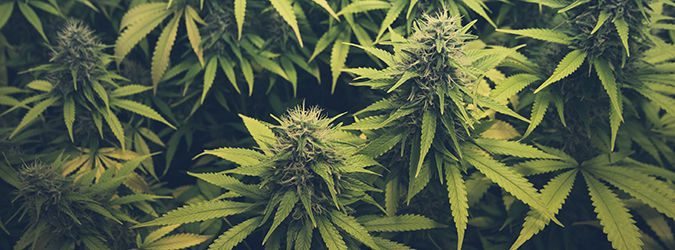Why Is Arbitration Ideal for Resolving Cannabis Industry Disputes?

Why is Arbitration Ideal for Resolving Cannabis Industry Disputes?
This is a virtual program.
Please note the following time zones during which this program will take place:
ET – Eastern Time: 12:00 p.m.
CT – Central Time: 11:00 a.m.
MT – Mountain Time: 10:00 a.m.
PT – Pacific Time: 9:00 a.m.
Speed (AAA to provide stats on case disposition)
• Cannabis plants lose value when it sits
• Limited Discovery v Courts
• Emergency Relief (R-38 Interim Measures and R-39 Emergency Measures of Protection)
Confidentiality
• Maintain Trade Secrets, IP, and Proprietary Business Information/Practices
• Preserve Business Relationships
Subject-Matter Expertise
• Judges and Juries typically lack familiarity with industry practices
• Judges and Juries may have biases against the industry
Access to Justice
• State Courts are Accessible
• Restricted Accessibility to Federal Courts including Bankruptcy Courts
What types of agreements can arbitration clauses be incorporated in?
• Partnership/Joint Venture Agreements
• Product Wholesale Agreement
• IP/Licensing Agreements
• Equipment Leases
• Manufacturing Agreements
• Extraction/Infusion Agreements
• Security Agreements
• Consultant Agreements
• Construction and Real Estate Agreements
• Employment Promulgated Plans and Executive Contracts
What are some of the challenges that arbitrators have seen when arbitrating Cannabis disputes?
• Conflicting contracts
• Course of conduct
• Conflicting arbitration clauses
• Proper Parties
• Arbitration Clauses that provide for full discovery and application of FRCP
• Counsel that lack experience with arbitration
• Fulfilling Mediation as a Condition Precedent
What are some of the tips for drafting arbitration clauses for Cannabis disputes?
• Overview of the Standard Arbitration Clause
• Arbitral Administrator and Rules
• Mediation
• Choice of Law and Hearing Locale
• Arbitrator Qualifications and Number of Arbitrators (point out challenges with party-appointed arbitrator selection)
• Discovery
• Confidentiality
• Duration (3 mos. provisions are typical but rare for parties to be at the ready—realistic time frame is 4-6 months)
• Document Retention
• Scope of arbitrator’s remedies for relief (limitation of damages that are awardable)
• Form of Award
• Attorney’s Fees and Costs
• Arbitration Appeal
Moderator:
Lance Tananka, Vice President, AAA-ICDR
Panelists:
Kyle-Beth Hilfer, Hilfer Law
Gary Michael Smith, Founding Member, Guidant Law
Tom Downey, Arbitration Panelist of the American Arbitration Association; Board Chair of the Coalition for Cannabis Policy, Education, and Regulation (CPEAR)
.
If you are having any trouble registering for this event, or can't access your NYSBA account, please contact our Member Resource Center team at 800-582-2452.
————————————————————————————————————————————————————–
SINGLE DAY PROGRAMS (Live, Webcast, Webinars & Video Replays)
Cancellations received more than 3 days from the scheduled program date: 100% refund
Cancellations received between 0-3 days from the scheduled program date: 100% refund (less the $25 cancellation fee)
Cancellations received after the scheduled program date: No refund
- September 13, 2023
- 12:00 PM
- 1:30 PM
- 1.0
- 1.0
- Virtual Participation
- Webinar
- 0ND11
- Commercial & Federal Litigation Section
- Committee on Continuing Legal Education
- Cannabis Law Section
- Dispute Resolution Section




